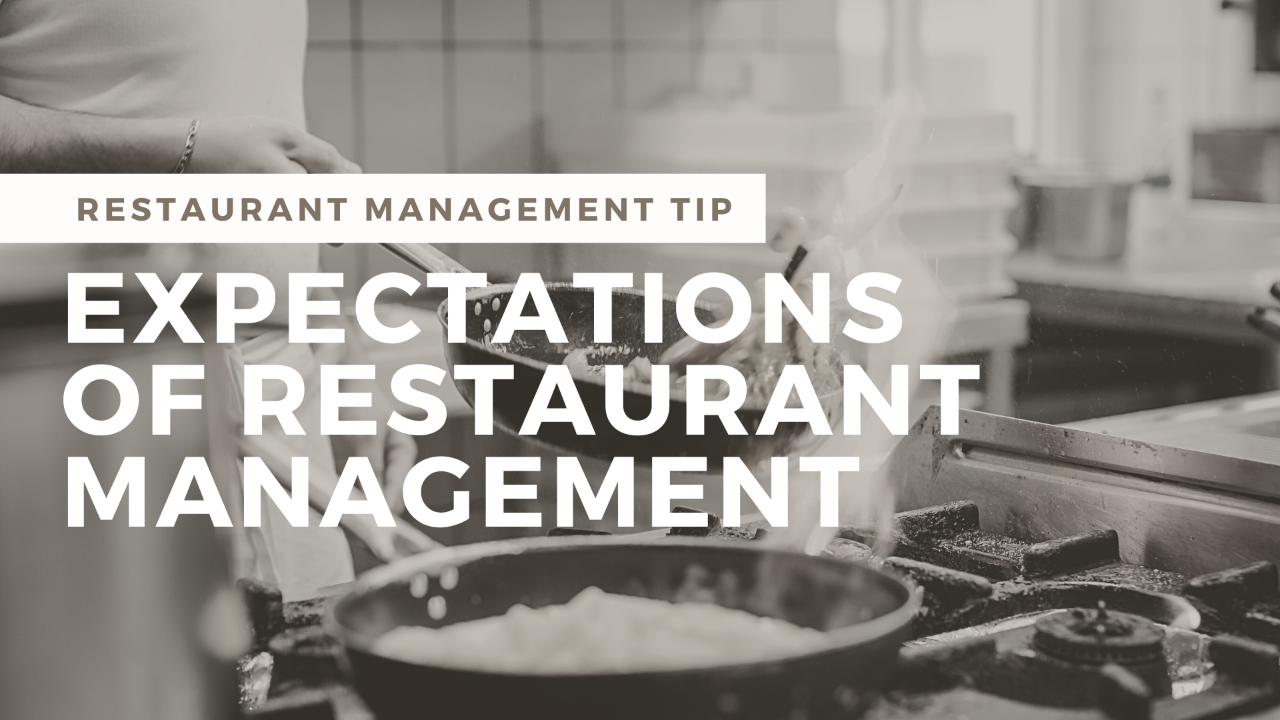What to Expect from Restaurant Leadership in the Kitchen

Is it better to hire a chef as a restaurant manager in the kitchen? The short answer is that there's only one difference between a chef as a manager in the kitchen and a manager with general kitchen knowledge. Regardless of which type of restaurant manager you hire for the kitchen, here are the skills you should expect them to know and the duties you should expect them to perform in this important role in the restaurant.
A lot of restaurant owners look to chefs as an ideal manager in the kitchen. After all, they are people destined to help create an experience in a restaurant that results in pleasure and lasting memories. But often a chef is unprepared to lead the restaurant because the higher the position a person has in a kitchen, the less they will cook. In a well-run restaurant, the title of chef is less about creativity and more about management.
When it comes to job expectations, you should expect your chef is going to have a much broader knowledge of food. From French cuisine to knife skills to being able to break down a side of beef, they will have a broad range of knowledge and culinary skills. They have an ability to train others the same way. A kitchen manager is going to manage a kitchen but may not have the culinary knowledge of a chef. At the end of the day, chef still means manager.
What to expect from restaurant leadership in the kitchen
- Knows and creates all menu items offered at the restaurant upon approval from owners.
- Provides build sheets and photographs so all staff can accurately answer menu item questions regarding preparation methods, ingredients, portion sizes and side items accompanying the dishes.
- Sets all specifications for substitutions for items on the menu.
- Orders on budget, following pars.
- Calculates and compares actual to ideal food cost.
- Maintains a level of inventory that turns four to six times a month.
- Ensures that proper food controls are in place to maintain an appropriate level of cost of goods, within ½ percent of the target budgeted food cost.
- Stays within line-item budgetary goals assigned to this position, following the restaurant’s annual budget.
- Creates specials at least one week ahead of time and properly costs and prices each item.
- Builds menu for catering, from passed appetizers to full sit down on-site and off-site events.
- Creates specials at least one week ahead of time and properly costs and prices each item.
- Builds menu for catering, from passed appetizers to full sit down on-site and off-site events.
- Implements proper people practices regarding interviewing, selection, training and employee relations.
- Meets uniform and appearance standards.
- Maintains five-star health and sanitation rating with department of health.
- Maintains appropriate staffing levels.
- Controls labor within ½ percent of targeted labor cost.
- Maintains a positive attendance record, reports for assigned shifts, 0% no call/no show.
- Ensures ALL sanitation and safety standards are followed.
- Encourages and develops a cooperative team environment.
- Implements employee development plans.
- Leads by example.
It's really important that you, as the restaurant owner, understand what the expectations are from your culinary leader, or you'll be paying someone who doesn't have a grasp of what's expected of them. Ultimately, they will let you down. Even when it's your fault, you allowed it to happen. Use this list as your guide in assessing ability of any restaurant manager you look to hire and what you expect them to execute day to day in the restaurant kitchen.
Be sure to visit my YouTube channel for more helpful restaurant management video tips.




